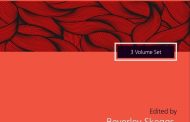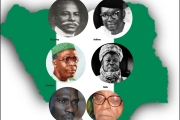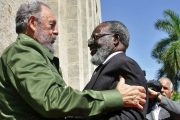Hausa-Fulani Hegemony is coming back to the debate. It has never been closed but coming back in the sense that it is being formally tabled for dissection. That is what would be happening October 31st, 2019 at the 5th Prof Bayo Okunade Inter-University Debate at the University of Ibadan.

Myth or reality but is there reality that is different from myth?
Three things are unlikely about the notion of Hausa-Fulani hegemony framework. It is unlikely that any other concept has been invested with so much mysticism in Nigerian politics as the Hausa-Fulani Hegemony. It is also unlikely to find another concept with the longevity which this concept has enjoyed. Lastly, it is most unlikely that anyone has done a genealogical study of the concept as to have established its changing meaning, genealogy being largely still an unknown methodology in Nigerian social science.
The recent wave of anti-Fulani sentiments arising from the incidence of violent and intrusive herders makes this a most timely topic for debate. It would be interesting to see what new perspectives are brought into the analysis of the topic as it moves down South from the Bayero University, Kano – Ahmadu Bello University, Zaria axis where its different manifestations have been the subject of clashes at campus debates for decades until recently.
This is what reflects in the scholarship of many intellectuals of Northern origin who dealt with the issue, whether we are talking of Ibrahim Tahir’s Cambridge University thesis or Bala Usman/Balarabe Musa’s thesis of the Northern Oligarchy or Sule Bello’s contestation of Bala Usman or Bala Takaya/Sonni Tyoden’s Kaduna Mafia. Each of these is a different standpoint from the other in terms of the Hegemon unlike in the South where academic confrontations with the concept in its different mutations follow an ethno-regional pattern largely and a rather homogenizing narrative that makes no allowance for class or religious fragmentation of the Hausa-Fulani category. So, Christian Fulanis, for example, are almost discounted in such narratives as in Prof Peter Ekeh’s notion of the Fulani as a historically dominant ethnic minority. So also is the difficulty in explaining the Kaduna Mafia’s discomfort in 1983 as to dash for an alliance with Chief Awolowo but only to be masticated in that election by the oligarchic arm which, however, got overthrown subsequently in the 1983 coup.
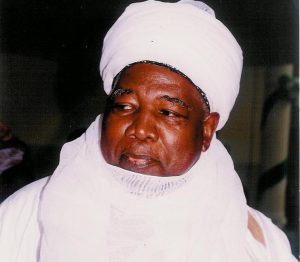
The late Ibrahim Tahir undertook a PhD at Cambridge University in which he argued that there had been a commercial revolution with particular reference to Kano which had swept off the Jihadist aristocracy
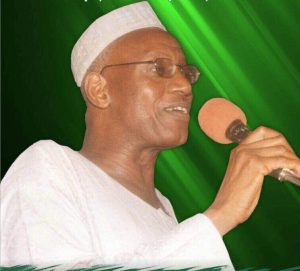
The legendary Bala Usman argued that there is the Northern Oligarchy which he defined more or less in blood terms, somewhat similar to Ekeh’s but posed against the Talakawa
The representation of the Hausa-Fulani elite as such an all time solid, all-conquering and autonomous category is one of the most interesting but misleading notions in the engagement with Nigerian politics. Whether those who do such analysis appreciate the self-disempowering implication it embodies remains unclear. The question is how far the impending debate in Ibadan will reinforce or rupture some of the fancy as well as solid notions of this ‘Hegemon’.






